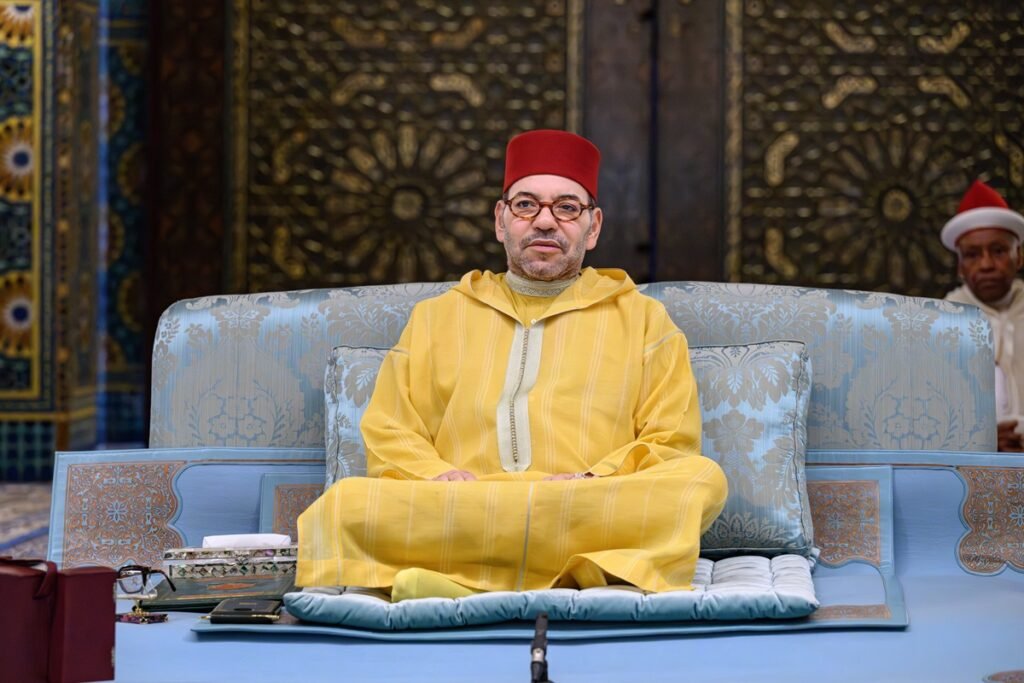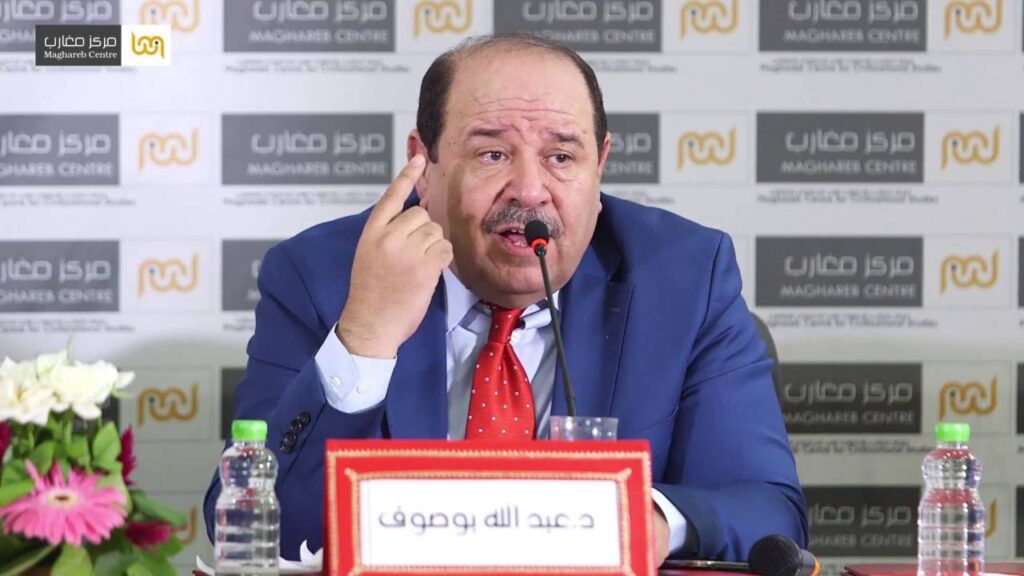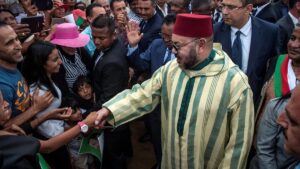Royal message to revive fifteen centuries of guidance

The Royal Message addressed by His Majesty King Mohammed VI, Commander of the Faithful, to the Supreme Council of Scholars on the occasion of the fifteenth century since the birth of the Prophet, may God bless him and grant him peace, constituted a pivotal intellectual and spiritual moment. It did not merely commemorate the birth of the Prophet in its celebratory dimension, but rather went beyond that to re-pose a central question: How can we make the Prophet's life a beacon of guidance in the twenty-first century? How can we transform our love for him from a mere sentimental emotion into a civilizational project capable of confronting the major challenges plaguing our world, such as extremism, hatred, isolation, and conflict?
The Royal Message captured the essence of the prophetic message when it affirmed that the greatest teachings of the Prophet (peace and blessings be upon him) were monotheism, and that the moral translation of this monotheism in our time lies in educating generations to liberate themselves from selfishness in their individual and collective lives. This profound reference reinterprets the biography in light of our troubled present, where the logic of self-interest dominates and the sense of community is weakening, at a time when the world is in dire need of the values of mercy, solidarity, and justice. The Prophet was not merely a preacher of rigid rituals, but rather a teacher of humanity on how to liberate itself from its narrow tendencies and build a society based on compassion, solidarity, mercy, love, and respect.
Discussing the Prophet's biography in its practical dimension means getting closer to the character of the Messenger in his humanity and real-life experience. He was a husband and father who knew the meaning of tenderness and responsibility. He was a neighbor who checked on his neighbors and shared their joys and sorrows. He was a man who knew the meaning of pain when he lost a loved one and the meaning of joy when he stood up for justice. He was a man who laughed, joked with his friends, and cried during his prayers. If this image is brought closer to the new generations, it will make him a realistic role model in whom they can find their selves.
The royal message confronted scholars with their historical responsibility, calling on them to deliver lessons and lectures and organize scientific seminars in a manner appropriate to the times and resonating with the minds of young people. They also called on the media to promote the biography. What is required today is to devise new methods that will keep the biography present in people's consciousness through novels, theater, cinema, and podcasts, and by integrating it into educational curricula in a way that answers young people's major questions: How do I deal with anxiety? How do I face loss? How do I strike a balance between work and spirit? These are the same questions that the Prophet Muhammad faced as a human being who lived among people. In this sense, the biography can be transformed into a laboratory of values and a practical guide for life.
When it comes to addressing conflict issues, the Prophet's biography offers vivid lessons relevant to all times. The Prophet, peace and blessings be upon him, faced a tribal environment fraught with conflict yet was able to establish the Charter of Medina, which united Muslims, Jews, and polytheists on the basis of shared rights and duties. This constituted the first civil social contract in the region's history. Faced with extremism and violence, he chose forgiveness on the day of the conquest of Mecca rather than revenge, transforming a moment of conflict into an opportunity for reconciliation. Faced with hatred, he stood in respect for a Jewish funeral, reminding his companions that human dignity is not linked to religion alone, but to humanity as such. Faced with isolationism, he sent his companions to Abyssinia, home to a just Christian king, to affirm that the quest for freedom and justice transcends narrow religious affiliations. These positions are not incidents from the past; rather, they are inspiring models that can form the basis for a contemporary human discourse that transcends conflict and embraces convergence.
One of the most prominent features of Morocco's relationship with the Prophet is the presence of Sufism, which has been and continues to be a spiritual school that cultivates love for him and makes practical behavior a reflection of that love. Since the sixth century AH, Moroccan Sufism has been a path for rooting prophetic morals in the daily lives of believers. Remembrance, listening to the Prophet, and prayers for him were educational tools for reviving the connection to the Prophet's mercy and purifying souls. Sufi orders and zawiyas contributed more to the spread of Islam in sub-Saharan Africa through good example and noble morals than wars or authority. Thus, love of the Prophet became part of the shared spiritual identity between Moroccans and their African brethren. In this context, the influence of books such as "Al-Shifa" by Qadi Ayyad and "Dala'il al-Khayrat" by Imam al-Jazuli cannot be overlooked. These books were not limited to Morocco but spread throughout the East and West, becoming bridges of spiritual communication between Muslims.
Sufism also stands out as a point of separation and connection at the same time. It is akin to demilitarized zones where we meet to alleviate our conflicts and increase our love and familiarity with one another. It is the space that allows humans to find new meaning in their existence after being exhausted by the conflicts of reality and drowned in an endless whirlpool of matter. Sufism offers contemporary man an answer to his greatest dilemma: To which shore should he sail, now that his life has lost its meaning due to the confusion that has befallen him? By returning to the values of love, remembrance, and serenity, man finds in Sufism a path to spiritual balance and inner reassurance, which makes this Sufi dimension all the more urgent in a time when causes of anxiety and confusion are multiplying.
The royal message serves as a reminder of this authentic Sufi dimension that connects Moroccans to the Prophet's life in its practical and spiritual dimensions, emphasizing that commemorating this anniversary is not merely a tribute to the past, but also a foundation for a future in which the world needs a spiritual discourse that balances reason and conscience and provides people with inner peace in the face of contemporary anxiety.
It is noteworthy that the royal message called for the participation of Moroccans living abroad and African countries in the commemoration activities. This reflects a strategic vision that makes the occasion a bridge for cross-border communication. In an age of globalization, it is no longer possible for religious discourse to remain narrowly local. Rather, it must transform into a global discourse that presents Islam as it was presented by the Prophet: a religion of mercy, justice, and coexistence, not a religion of violence and isolation. This is what humanity needs today more than ever, in light of rising waves of racism and extremism and the distortion of the image of religion in the global media.
Celebrating the fifteenth century since the birth of the Prophet (peace and blessings be upon him), as highlighted in the royal message, is not merely a moment of nostalgia, but rather a call to build the present and future on the foundations of mercy, justice, and spiritual freedom. The Prophet's biography is the key to understanding how faith can transform into ethics, how monotheism can become a force for liberation from selfishness, and how it can serve as a practical guide for confronting contemporary crises. This celebration will not achieve its goal unless it is transformed into an educational and cultural project that translates the Prophet's values into a lived reality in schools, in the media, in the arts, and in daily life.
The royal message sets before us a clear roadmap: to invoke the Prophet's biography not as a distant symbol but as a living example, and to make love for the Prophet a civilizational project that confronts extremism and hatred with mercy, isolation with openness, and conflict with reconciliation. Fifteen centuries after his noble birth, the Noble Prophet remains present within us through the values he brought, and Morocco remains loyal to him through the Emirate of the Faithful, which has made protecting religion and upholding the Prophetic guidance an ongoing mission, and through a people who loved their Prophet and made their love the starting point for building their civilization. Thus, celebrating the Messenger of Mercy becomes not just a historical commemoration, but a renewed message that illuminates our path in a world increasingly in need of beacons of mercy, justice, love, and respect.






